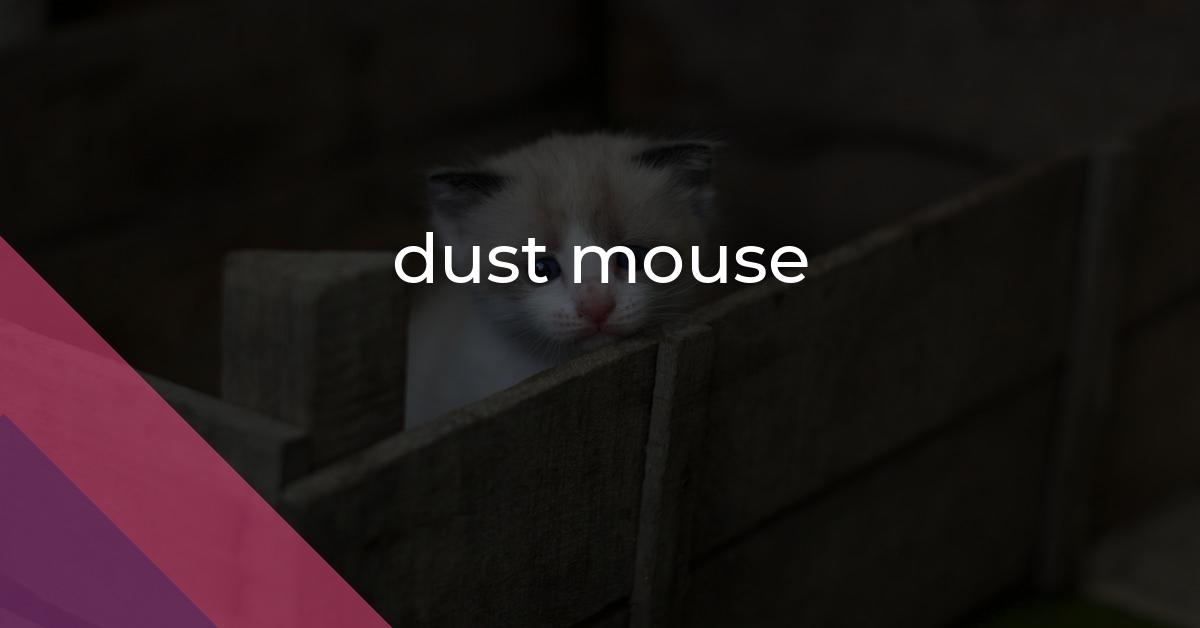dust mouse: Idiom Meaning and Origin
What does ‘dust mouse’ mean?
The meaning of the idiom dust mouse is uncertain and not found in many texts about idioms. There is limited information available on this specific idiom.

Idiom Explorer
The idiom "not see someone for dust" means to not have seen someone for a long time.
The idiom "in the wind" means to feel or sense that something is about to happen or change, often referring to a situation that is not yet fully known or understood.
The idiom "I don't know about that" is used to express doubt or skepticism towards a statement or proposition. It implies that the speaker does not have enough information or disagrees with the statement in question.
The idiom "horse and rabbit stew" is not a commonly known expression. It does not have a widely accepted meaning or usage. No reliable sources support its existence as an idiom.
An idiom that means something is extremely rare or difficult to find, as hens do not have teeth. It is often used to emphasize scarcity or rarity in a descriptive manner.
The idiom "get rid of" means to dispose of something or eliminate something or someone.
The idiom "fuck knows" is a colloquial and vulgar expression used to indicate a lack of knowledge or understanding about a specific situation or question. It conveys a sense of uncertainty or ambiguity, emphasizing the speaker's ignorance or inability to provide a certain answer.
An idiom meaning someone is not very intelligent or mentally unstable.
Hidden Magic Unveiled
A dust mouse is an idiomatic expression that is not widely known or used. There is limited information available about its exact origins and usage, but some facts can be established.
A dust mouse, in simple terms, is a small clump of dust that accumulates in corners or crevices. It looks like a tiny mouse. This idiom is primarily used in a humorous or whimsical manner. It's a lighthearted way to refer to household dirt or other tiny debris.
The idiom "catch dust" is closely related to the concept of a dust mouse. It means to accumulate dust over time. When you have a dusty room that hasn't been cleaned in a while, you can say that it has caught dust. Similarly, a dust mouse is a tangible representation of the dust that has been caught or accumulated in a particular area.
Another related idiom is "collect dust." This phrase is often used to describe objects that are left unused or untouched for a long period of time, gathering dust in the process. It's similar to catching dust, but with a stronger emphasis on the idea of neglect or abandonment. In a way, a dust mouse can be seen as a visual representation of something that has collected dust and been forgotten or neglected.
The idiom "dusty miller" can also be connected to the concept of a dust mouse. "Dusty miller" is a term used to refer to a specific type of plant with silvery leaves that have a dusty appearance. The plant's leaves resemble the texture and color of dust, hence the name. In a way, a dust mouse is like a miniature version of a "dusty miller," with its small clump of dust mimicking the appearance of the plant's silvery leaves.
Despite its limited usage, the idiom "dust mouse" has been mentioned in a few online forums and blogs dedicated to collecting and discussing idiomatic expressions. These sources suggest that "dust mouse" might have originated from the combination of the words "dust" and "mouse," with the latter symbolizing the small size and inconspicuous nature of the accumulations. However, it is important to note that there is no substantial evidence to support this specific etymology, and it should be treated as speculative. The idiom's exact origins and first usage remain unknown.
In terms of its cultural significance, the idiom "dust mouse" does not hold a prominent place in American English. It is not widely recognized or used in everyday conversations. Its limited usage and lack of substantial presence in popular culture make it a rather obscure idiom.
That being said, the existence of the dust mouse idiom raises interesting questions about language and cultural expressions. It serves as a reminder that language is a dynamic and evolving system, with new idiomatic expressions and phrases constantly emerging and fading away. The dust mouse idiom represents a fascinating linguistic phenomenon, showcasing how even seemingly insignificant phrases can provide insights into the way we communicate and understand the world around us. Its obscurity adds an air of mystery to its origins and usage, leaving room for further exploration and speculation.
Example usage
Example 1: When my mom asked me to clean my room, I found a dust mouse the size of a tennis ball under my bed.
Example 2: The old abandoned house was filled with dust mice scurrying around in every corner.
Example 3: After neglecting his bookshelf for months, John discovered a dust mouse nestled among his old books.
More "Animal" idioms



